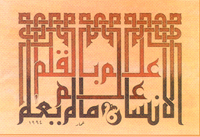UNESCO Sharjah Prize for Arab Culture

- © Al-Munji Ammar / Dept. of Culture and Information, U.A.E.
The Sharjah Prize for Arab Culture was established in 1998, on the initiative of the United Arab Emirates. The Executive Board of UNESCO approved the Statutes of the Prize and took note of its Financial Regulations. Following a decision by the 155th Session of the Executive Board, the Prize was originally to be awarded once every two years during the General Conference of UNESCO.
The purpose of the Prize is to reward the efforts of a national of an Arab Country and a national of any other country who have contributed, through their artistic, intellectual or promotional work, to the development and diffusion of Arab culture in the world.
The objective of the Prize is in conformity with the Constitution of UNESCO, according to which the Organization is assigned among other things to the task of promoting the mutual understanding of peoples through activities that encourage greater knowledge of the cultures of different peoples and exchange between different cultures.
The Director-General received from His Highness Sheikh Sultan Bin Mohamed Al Qassimi, Ruler of Sharjah (United Arab Emirates) a letter dated 23 December 2002, indicating the desire to award the Sharjah Prize for Arab Culture every year, instead of every two years, starting from October 2003, and informing that an amount of US$ 50,000 will be allocated annually. An amendment to the Statutes of the Prize was prepared. This amendment was proposed to and approved by the Executive Board at its 167th Session.
- Laureates
- Statutes of the Prize (167 EX/Decision 5.4) - pdf
- Contact: prix.sharjah@unesco.org


